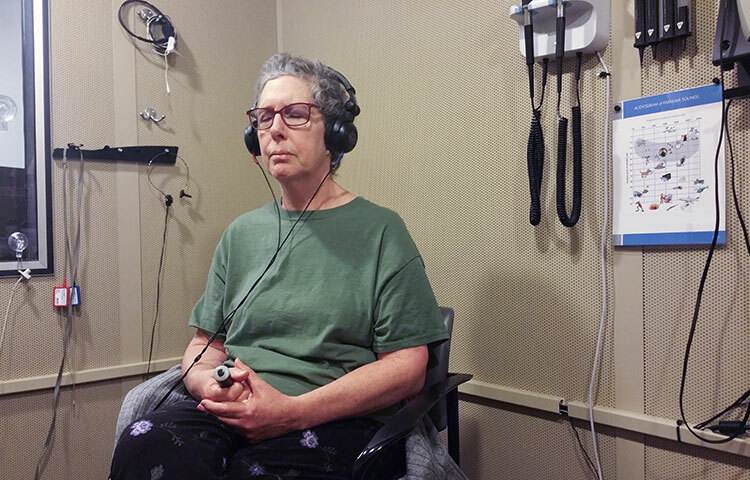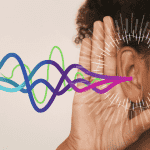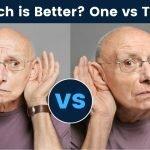Just about every other day in the audiology or ENT office, patients or clients have expressed their thoughts on hearing loss and hearing aids. Some concerns that were expressed by patients or clients are concerns they may have a misconception about.
Those misconceptions that audiologists and ENT physicians hear are relatively common, and of course, those misconceptions should be put to rest to help ease the patient’s concerns. Here are the five common misconceptions that most audiologists hear from their patients or clients.
Loud TV doesn’t equal hearing loss
It is understandable if the TV volume is louder than usual for an enjoyable experience, such as when watching a movie or a sporting event. Some folks even have the TV up louder than usual to hear the TV from another room.
However, If you find that you have to continually turn the TV up a little louder than usual, and someone in your home or neighbor next door (if you live alone) have complained that the TV is too loud, you may want to consider getting your hearing tested.
It’s recommended to see your ENT or an audiologist to have your ears or hearing checked. How to know for sure if you need a hearing test?
Turning the TV up a little louder than normal on a consistent basis to get the clarity of the words could be a sign that you may have a hearing loss. It warrants making an appointment to see your ENT physician or an audiologist for a baseline hearing test to check your hearing sensitivity.
Hearing aids are not for me
If you have been diagnosed with a hearing loss, hearing aids may be recommended by your Audiologist or ENT specialist. However, some people with hearing loss have felt that hearing aids are not for them due to several reasons.
One, there’s a stigma behind wearing hearing aids as some folks thought they might look “old” if they wear the devices in public.
Two, some people don’t want others to know that they have a hearing loss, or were too embarrassed to wear hearing aids.
Three, some people felt that wearing hearing aids could be tedious or time consuming to place on the ears and do not want to include hearing aids as their everyday routine. Some are even worried that it could get in the way of wearing glasses.
Four, some felt that hearing aids may not be beneficial at all. All those are reasonable concerns to have and should be discussed with an audiologist.
Hearing aids nowadays are mostly invisible and discrete, as well as comfortable to wear. They come in different styles to fit the individuals’ hearing needs. Modern technology has improved the sound quality of hearing aids, allowing individuals to hear better in challenging listening situations.
The audiologist will discuss and help you to better understand your hearing sensitivity and choose the best hearing devices based on your hearing loss. Wearing hearing aids may help improve your quality of life daily.
Hearing aids are for the elderly
Hearing aids are not just for senior citizens. People of all ages wear hearing aids. Again, this is another stigma that people believe hearing aids are worn by the elderly since it is common for them to have hearing loss.
Hearing aids can be worn by anyone born with hearing loss, lost their hearing at a young age, or may have had damaged hearing due to prolonged exposure to loud noise and sudden loud sounds.
Hearing aids are for anyone with hearing loss and need help and being able to hear better in everyday listening situations. For example, a baby with hearing loss can be fitted with hearing aids if hearing loss was detected early.
Hearing aids could help babies and children hear and understand speech and language. Children and teenagers are wearing hearing aids to help them listen to their teachers in schools. There are young adults with hearing loss who are wearing hearing aids do well at work or college.
Only the elderly have hearing loss
Hearing loss is indeed prevalent in the elderly population. Hearing loss caused by aging is called Presbycusis. However, hearing loss can also be genetic or inherited.
People can be born with congenital or spontaneous hearing loss. Some people developed hearing loss over a period of time, starting at a young age. Some people developed hearing loss due to medications that could be toxic to the hearing system. An illness such as meningitis could potentially cause hearing loss.
Even prolonged noise exposure could lead to some degree of hearing loss. Some people experienced a sudden hearing loss that was spontaneous and, unfortunately, could become permanent. Therefore, hearing loss is not only seen in the elderly population; it can be seen in people of all ages.
My hearing test is wrong because I can hear just fine
When an audiologist is performing a hearing test, they utilize the “test-retest” reliability to ensure that the hearing threshold is accurate.
Equipment is also checked daily to ensure they are working properly to perform accurate hearing tests. However, if you have had your hearing test completed and felt that the test is incorrect because you think your hearing sensitivity is within the normal range, you can request a second hearing test or a second opinion from another audiologist.
Get your hearing tested
When hearing loss is present in an individual, it could potentially impact their emotional and mental health. Hearing loss could also affect one’s relationship with family and friends, as well as their own self-esteem.
Hearing loss could impact children’s speech and language skills as well as social skills. Work or school performance could be unsatisfactory due to the individual’s hearing loss. It is crucial to have a hearing test done to determine if hearing loss is present.
If hearing loss is present, your audiologist can help you understand your hearing loss better, and provide recommendations on hearing devices that may improve your everyday listening situation as well as your quality of life.




